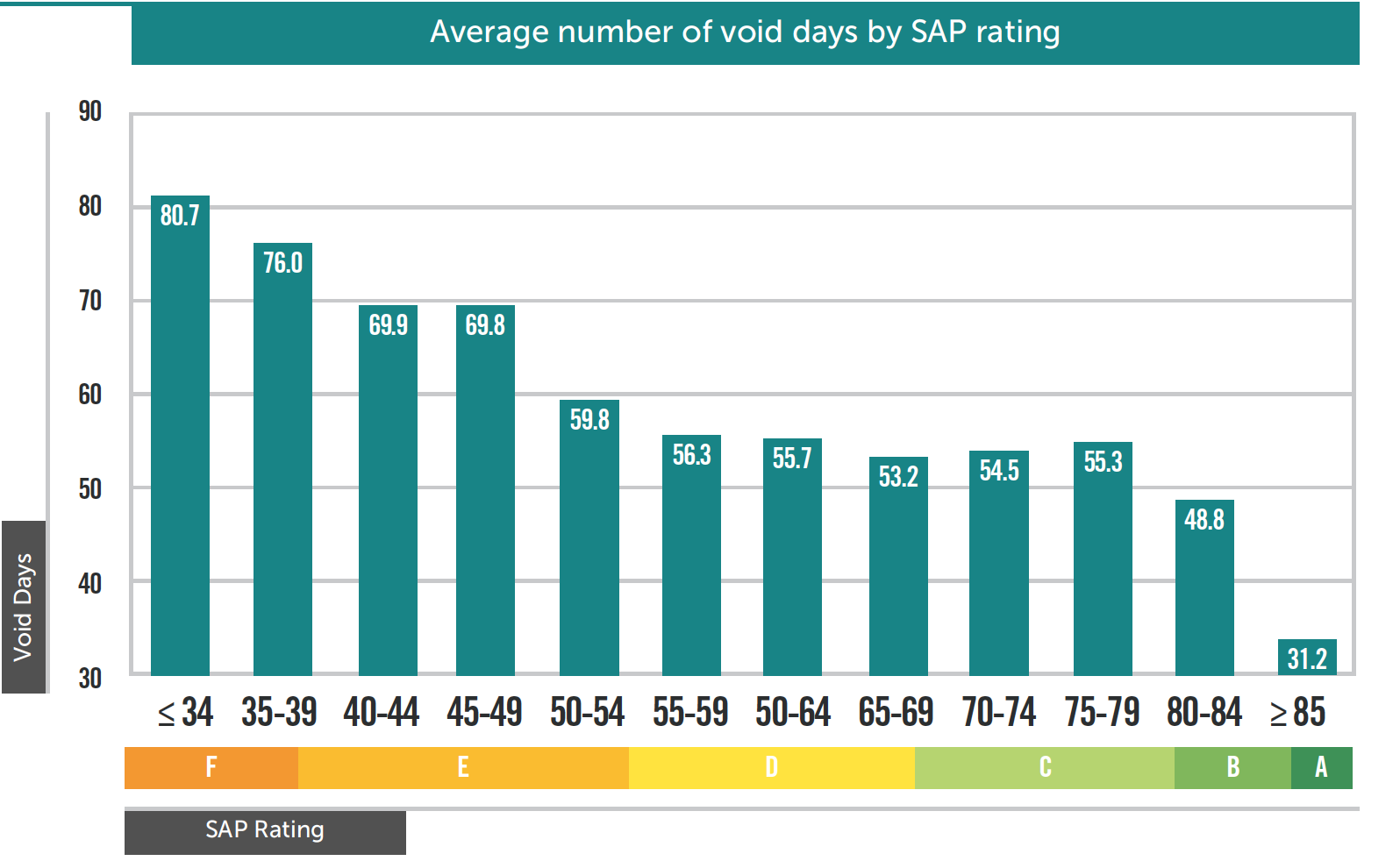
The benefits of energy efficiency in housing are, quite rightly, often framed in terms of the impact on climate change and the lives of tenants. But this can mean landlords overlook the fact that there is ample evidence that more energy efficient homes repay the investment needed to upgrade them.
Benefits come from a range of cost centres, and data for some of these is not commonly held by many social housing landlords. So we have assembled some of the most relevant studies and data as a brief reference to set expectations about what can be achieved from improving the energy efficiency in housing.
The largest data set available on the impact of energy efficiency comes from a Rockwool survey of social housing landlords, which provides some striking findings:
- a clear relationship between energy efficiency and number/duration of void periods.
- properties with lower energy efficiency generated more rent arrears. An average of two weeks more arrears for a home rated F compared to a home rated C.
- for every 10 point improvement in the SAP score a reduction in average annual costs of responsive repairs of £90
Additional work done for Orbit Housing identifies an opportunity to reduce customer contacts by 75000 over 20 years if their 27,000 homes are improved.
